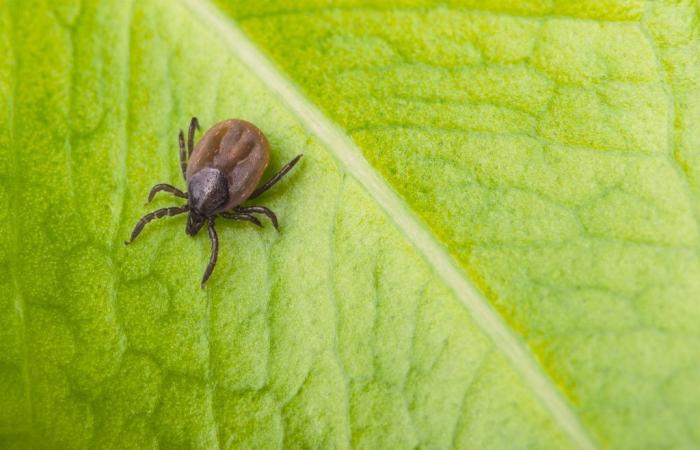HEALTH. Ticks are gaining ground in Centre-du-Québec, to the point where the MRC of Drummond is now considered an endemic area for Lyme disease.
While the summer season is in full swing, new data from the National Institute of Public Health of Quebec reveals an increase in the presence of ticks and the risk of contracting Lyme disease throughout Quebec.
Several new municipalities in the region are now considered endemic, meaning places where the risk of contracting Lyme disease is increased.
All municipalities in the MRC of Drummond appear in the list. New, we find Durham-Sud, L’Avenir, Lefebvre, Notre-Dame-du-Bon-Conseil (parish and village), Saint-Cyrille-de-Wendover, Sainte-Brigitte-des-Saults, Saint-Edmond- de-Grantham, Saint-Félix-de-Kingsey, Saint-Germain-de-Grantham and Saint-Guillaume.
The determination of the endemic zone is carried out by municipality and integrates data from human surveillance (human cases acquired in Quebec and reported to public health) between 2004 and 2023, active acarological surveillance (ticks collected during field collection activities using the standardized flannel method) between 2010 and 2023, and passive acarological surveillance (ticks found on humans and animals, and voluntarily transmitted by physicians to the Laboratoire de santé publique du Québec) between 2009 and 2023.
The Public Health Department of the Integrated University Health and Social Services Center of Mauricie-et-du-Centre-du-Québec recalls the main prevention tips regarding tick bites: wear long, light-colored clothing during activities outdoors, apply mosquito repellent containing DEET or icaridin, walk in the center of trails or cleared paths, avoid walking in tall grass or fallen leaves, and check yourself for ticks on the body after external activity.
It is recommended to check outdoor gear to prevent accidental introduction of ticks into the home and put clothing in a dryer on high heat for 10 minutes.
If you are bitten by a tick, remove it as soon as possible using the appropriate method. Then, call Info-Santé 811; the nurse will tell you if you need to see a health professional. Preventive treatment (postexposure prophylaxis) can be offered to people who have been bitten in targeted geographic areas and who meet the determined criteria.
__
L’Express invites you to download its application. You will be able to continue reading your news for free, and in real time. Don’t forget to activate notifications!
Apple : https://apps.apple.com/ca/app/lexpress-de-drummondville/id1575799821?l=fr-CA
Android : https://play.google.com/store/apps/details?id=ca.journalexpress.app&hl=fr






